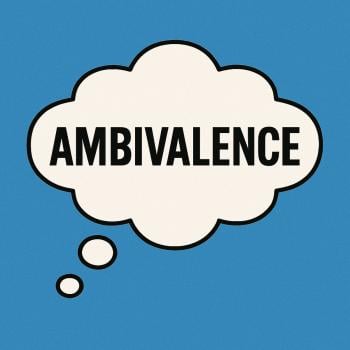Honestly, I haven't heard a lot about it. Several detractors pointed out that I'm not a Reconstructionist (I'm not . . . and state so in the book). That's about the only negative feedback that I've had. To use Hermes in the business suit as an example, I have no interest in taking away the images of the past. They're useful, they're important, and they're vital images! They awaken our imaginations, and that is so necessary. As I say in the book, the new view isn't meant to replace the old, but to add to it. It makes it a part of us, here, now.
What are the greatest challenges that you personally see facing the theological evolution of Hellenic Paganism today?
I think Hellenics face the same challenge as every other society: attrition. Our children are not being taught ethics and morals as a part of their education. They are not being taught the rules of friendly competition. They are not being taught that it is valuable to excel in the world. Instead, they are being taught that being like everyone else is good, that competition is bad, and that we are all alike. These thoughts are so far from Hellenic beliefs that I'm not sure our ancestors would even be able to put them into sentences.
We're not exposing disabled children on mountainsides anymore, and that's a wonderful thing. Our medical prowess has allowed us to help those who have physical and mental difficulties lead productive, happy lives. Yet we hear stories of those who would make a class of English students read dumbed down stories because of one classmate having difficulties. We hear of children reaching college and university and not knowing how to add and subtract, or even read!
Theologically, the statements I've just made make no sense. We should be teaching our children to think for themselves, and to compete sensibly (and that includes learning how to be gracious losers!). We must not allow the degradation of the educational system to affect our children.
We must, as responsible citizens of any and all countries and states and cities, step up to the plate and teach our children ourselves. I'm not advocating pulling children out of public school, but we cannot rely on a government-run system to teach our kids everything. We have to be aware, participating, and ready to fill in the educational gaps immediately.
If we don't give our children the ability to think for themselves, if we don't expose them to the myths and teachings of our ancestors, then we do them a great disservice. We also doom our religious and spiritual movement to a slow and painful death.
In reading your book, I particularly liked your chapters on respecting diviners and crowning the ancestors (what a beautiful way to phrase it). I also immensely appreciated your ongoing emphasis in providing clear and consistent discipline and guidance for children. I know that I myself am often both angered and saddened by the lack of discipline inherent in contemporary parenting (not to mention the results); likewise, I'm equally aware that the concept of discipline is a controversial one within the scope of modern parenting. Have you received any negative feedback from your co-religionists over your stance in this matter?
I haven't had any negative feedback from fellow Pagans (Hellenic or otherwise) about my stance on children. Quite the opposite! I hear many positive things. I definitely have a very strong emphasis on children when I talk about my beliefs, because without a future generation to carry on what we are doing, we are doomed to extinction. Not only that, but if I have this strong a belief in my faith, then that should be passed on (in a non-judgmental fashion) to my children.
I do not believe we need to force children to practice as we do, nor do I believe the Greeks did so based upon the things I have read and researched. What I do believe was forced on children in ancient times was the idea that they should be responsible, educated, well-spoken citizens when they came of age, and their training as they grew reflected that. We need to provide the same sensible training to our own offspring.
The Greeks were very sensible. What they taught children was spirituality and morality and ethics, but not necessarily religion. Or rather, religion was considered a separate thing. Ethics and morals were needed if one wanted to be a good citizen, and so that was what was pushed. The Maxims are a moral code, one that emphasizes reliance on and worship of the gods, but as a separate thing. The Maxims and the ethics stand on their own, regardless of whether god exists at all. This is why the Greeks could philosophize about the existence and morality of the gods while also participating in elaborate religious rituals.
Sorry to be on my soapbox, but this is such an incredibly important issue. As our school efficiency declines (and know that it is happening, now, as we speak) we must take up the slack ourselves. As parents, it is our job to see that our children receive an excellent education, and if the public school system does not provide that, then we must fill in the gaps ourselves. It may not be a popular sentiment, but it is true. The responsibility is the parents', not the government's. That might mean we hire a tutor or send our kids to private schools, and that's just fine. That is being responsible! Ignoring negative facts and hoping they'll just go away, on the other hand, is not responsible.





